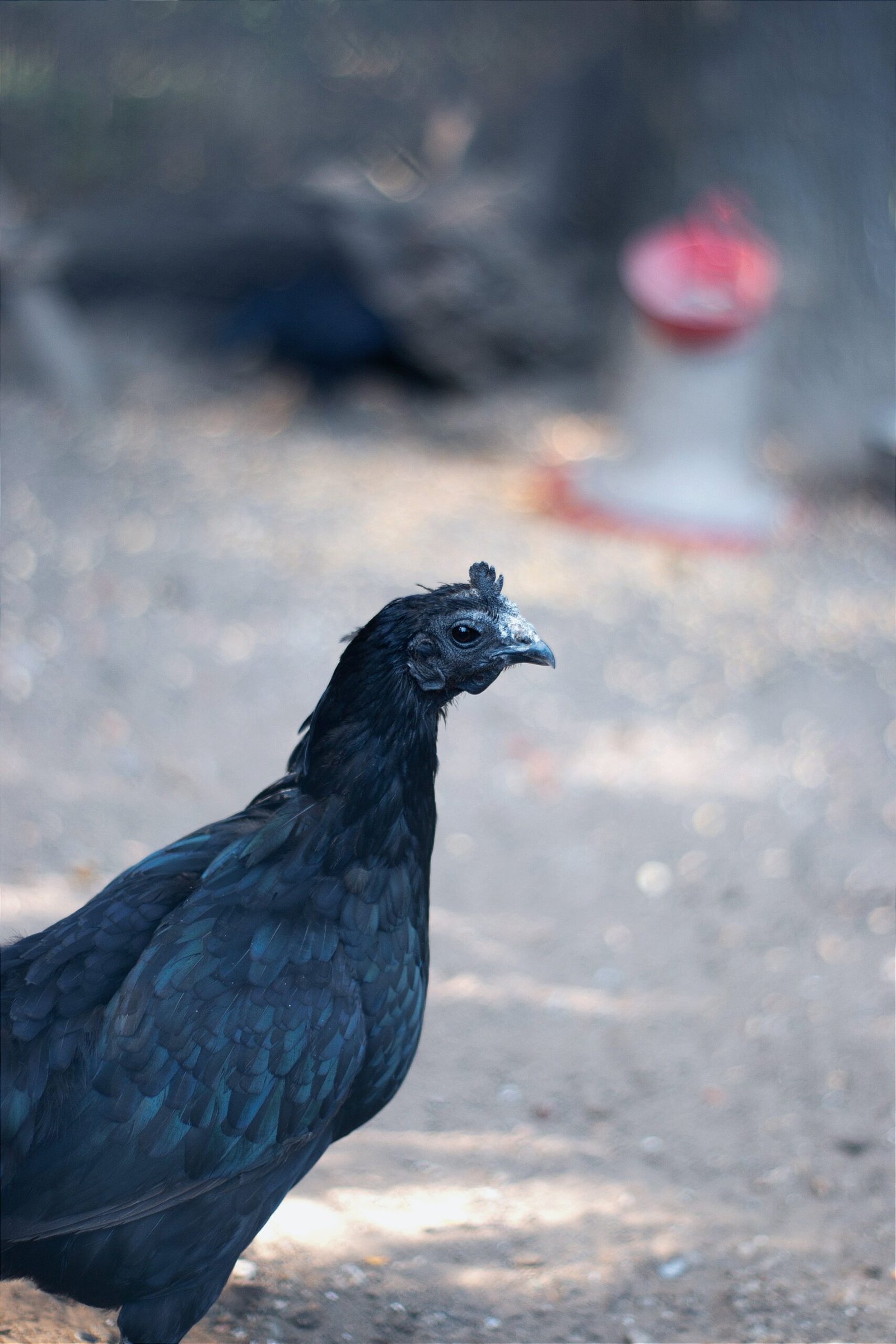
So, you have a flock of chickens and you’re looking for ways to ensure they get enough calcium in their diet. Well, you’re in luck! In this article, we’ll explore some ingenious methods to encourage chickens to consume those all-important calcium supplements. From adding tasty treats to their feed to creating engaging environments, you’ll discover practical tips that will have your chickens pecking away happily and meeting their calcium needs. Say goodbye to brittle eggs and hello to strong, healthy hens!

Why is calcium important for chickens?
Calcium is an essential nutrient for the overall health and well-being of chickens. It plays a crucial role in various biological processes within their bodies, making it indispensable for their growth, development, and reproductive abilities. When chickens don’t receive adequate amounts of calcium, they may experience a host of negative consequences that can affect their overall health and productivity. Therefore, it is crucial to understand the significance of calcium and its role in maintaining the optimal health of these feathered friends.
Role of calcium in chicken health
Calcium serves numerous vital functions within a chicken’s body. One of its primary roles is its contribution to the development and maintenance of strong bones and skeletal structure. Calcium is a key component of bone tissue, providing the necessary strength and rigidity to support the chicken’s body weight and movement. Without an adequate supply of calcium, chickens may develop weak bones, which can result in skeletal deformities or fractures.
In addition to bone health, calcium is also essential for proper muscle function. It aids in muscle contraction, allowing chickens to move and engage in essential activities such as foraging and roosting. Calcium is also necessary for nerve impulse transmission, helping ensure efficient communication between the brain and muscles.
Furthermore, calcium plays a critical role in the formation of eggshells. Egg production is a significant aspect of chicken farming, and calcium deficiency can have detrimental effects on eggshell quality. Insufficient calcium levels can lead to thin or weak eggshells, increasing the risk of cracks or breakages. Calcium is also involved in the proper development of egg embryos, ensuring healthy growth and successful hatching.
Consequences of calcium deficiency
When chickens do not receive adequate calcium, they can suffer from various health issues and suboptimal productivity. Calcium deficiency can lead to weak bones, making the chickens more prone to fractures or leg deformities. This can severely impact their mobility, overall well-being, and ability to engage in essential behavioral activities.
Additionally, insufficient calcium intake can result in poor egg quality and reduced egg production. Thin or weak eggshells can crack easily, making it problematic for both commercial egg production and backyard chicken keepers hoping to collect fresh and intact eggs. Calcium deficiency in laying hens can also lead to abnormal egg formation and a higher incidence of double-yolked eggs, which can negatively impact hatchability, fertility, and the overall health of the chickens.
Furthermore, calcium deficiency can affect the chicken’s overall immune function and vitality, potentially making them more susceptible to diseases and infections. It can also lead to decreased appetite, weight loss, and a generally suboptimal growth rate. Therefore, it is essential to address calcium deficiencies in chickens promptly to ensure their vitality, productivity, and overall well-being.
Factors affecting calcium consumption in chickens
Several factors can influence a chicken’s calcium consumption and utilization within their body. Understanding these factors is crucial in designing effective strategies to encourage and support their calcium intake.
Age of the chickens
The age of the chickens significantly impacts their calcium requirements and consumption patterns. Young chicks require adequate calcium for bone development and proper growth. As they mature, their calcium requirements may change, with hens needing more calcium for eggshell formation during their laying phase. It is important to adjust and provide the appropriate levels of calcium to meet the specific needs of chickens at different life stages.
Dietary preferences
Chickens, like any animals, have their dietary preferences and tastes. Some may be more inclined to consume certain calcium sources over others, based on factors such as taste, texture, and familiarity. Offering a variety of calcium supplements and allowing chickens to make choices based on their preferences can encourage greater calcium consumption.
Health status
The health status of chickens can affect their calcium consumption. Illness, stress, or underlying medical conditions may lead to decreased appetite or reduced calcium absorption within their bodies. It is important to monitor their health and provide additional support, such as consulting with veterinarians or poultry experts, to ensure adequate calcium intake during challenging periods.
Environmental conditions
Environmental factors, such as temperature and lighting, can impact a chicken’s calcium consumption. Extreme heat or cold weather conditions may affect their appetite and overall consumption patterns. Providing a comfortable and suitable environment for chickens can help maintain their appetite and encourage them to consume the necessary calcium supplements.

Identifying calcium deficiency in chickens
Recognizing the signs of calcium deficiency in chickens is crucial for promptly addressing the issue and providing the necessary supplementation. Some common indicators of calcium deficiency include:
Physical symptoms
Chickens suffering from calcium deficiency may exhibit physical symptoms such as lethargy, weakness, or difficulty in moving. They may have a hunched posture, reduced mobility, or even lameness. It is important to observe their behavior and physical condition regularly to identify any signs of calcium deficiency.
Eggshell quality
Eggshell quality is a valuable indicator of calcium status in laying hens. Thin or soft eggshells, with a higher incidence of cracks or brittle shells, can signal a calcium deficiency. Regularly monitoring and inspecting the eggs can provide insight into the need for calcium supplementation.
Bone strength
Weak bones or skeletal deformities in chickens can be indicative of calcium deficiencies. Fractures, rickets, or abnormal growth patterns in the legs or wings may suggest insufficient calcium levels. Regular check-ups and observation of bone strength is essential to detect and address calcium deficiency promptly.
Different forms of calcium supplements
Providing chickens with calcium supplements is an effective way to address calcium deficiencies and ensure their overall health and productivity. Some common forms of calcium supplements used for chickens include:
Oyster shell
Oyster shell is a popular and natural source of calcium for chickens. It is rich in calcium carbonate, which is easily absorbed by the chicken’s body. Oyster shell can be offered separately or mixed with their regular feed to provide a readily available source of calcium.
Crushed eggshells
Crushed eggshells are another inexpensive and accessible source of calcium for chickens. After cracking eggs for consumption, the eggshells can be collected, cleaned, dried, and crushed into small particles. They can be offered as a supplement mixed in with the regular feed.
Calcium carbonate
Calcium carbonate supplements are readily available and often used in commercial poultry feeds. They provide a concentrated source of calcium and are easily digestible. Calcium carbonate can be added to the chicken’s diet or used to fortify other calcium sources.

Offering a variety of calcium sources
To encourage chickens to consume an adequate amount of calcium, it is beneficial to offer them a variety of calcium sources. Different chickens may have individual preferences when it comes to calcium supplements, and providing options can help cater to their preferences and increase their overall calcium intake.
Providing a choice of supplements
Offering a choice of calcium supplements, such as oyster shell, crushed eggshells, or calcium carbonate, allows chickens to select the type they prefer. By providing multiple options, chickens can instinctively choose the calcium source that meets their specific tastes or requirements.
Mixing calcium sources in the diet
Combining various calcium sources can also be an effective strategy. Mixing oyster shell, crushed eggshells, and calcium carbonate into the regular feed ensures chickens have access to a range of calcium supplements. This approach provides flexibility and helps address individual preferences while meeting their calcium needs.
Ensuring proper feeding techniques
Proper feeding techniques can contribute significantly to the consumption and absorption of calcium supplements by chickens. Implementing appropriate techniques and practices can optimize calcium intake and ensure the chickens receive the necessary nutrients for their well-being.
Proper mixing in feed
When providing calcium supplements, ensuring proper mixing with the regular feed is essential. This ensures even distribution of the supplements throughout the feed, minimizing the risk of selective eating and ensuring all chickens receive an adequate calcium dosage.
Pelleted diets
Pelleted diets can be advantageous in promoting calcium consumption. Pellets can be formulated with the required calcium content, providing a consistent and balanced calcium intake for the chickens. Pellets also minimize wastage and selective feeding, ensuring each chicken receives the necessary nutrients.
Feeding schedules
Establishing regular feeding schedules and routines can help encourage calcium consumption. Chickens thrive on routine, and having consistent mealtimes can encourage them to consume their feed, including the necessary calcium supplements. It is also important to ensure that water is always accessible to help facilitate calcium absorption.
Balancing overall diet for calcium absorption
Balancing the overall diet of chickens is crucial to maximize calcium absorption. Certain factors should be considered to ensure the optimal utilization of calcium within their bodies and minimize the risk of calcium deficiencies.
Maintaining appropriate feed ratios
The ratio of calcium to phosphorus is critical for optimal calcium absorption. The recommended ratio is generally around 2:1 calcium to phosphorus. Maintaining this balance in the chicken’s diet helps maximize calcium utilization and minimize the risk of deficiencies or imbalances.
Avoiding excessive phosphorus
However, it is equally important to avoid excessive phosphorus levels in the diet, as this can interfere with calcium absorption. An excessive phosphorus to calcium ratio can lead to decreased calcium availability and lead to deficiencies, despite adequate calcium intake. Balancing the overall mineral content in the diet is crucial for optimal absorption and utilization of calcium.
Vitamin D supplementation
Vitamin D plays a vital role in calcium absorption and utilization. Chickens require adequate vitamin D to absorb calcium from their diet efficiently. Ensuring chickens receive adequate exposure to natural sunlight or providing them with artificial light sources to stimulate vitamin D production can help enhance calcium absorption.
Enhancing the palatability of supplements
To encourage chickens to consume calcium supplements willingly, enhancing the palatability of the supplements can be beneficial. Increasing the attractiveness of the supplements can help overcome any initial reluctance or selective eating tendencies.
Adding flavors or attractants
Adding natural flavors or attractants to the calcium supplements can make them more appealing to chickens. For example, sprinkling a small amount of sugar or herbs can entice the chickens to consume the calcium supplement willingly. This helps overcome any potential aversion and ensures they receive the necessary calcium for their health.
Crushing supplements into smaller particles
Chickens may have differences in preference regarding the size and texture of their food. Crushing the supplements into smaller particles or grinding them into a powder can make them more easily consumed by chickens, especially younger ones. Providing a choice of particle sizes can accommodate their preferences and encourage greater intake.
Monitoring and adjusting calcium consumption
Regularly monitoring and adjusting calcium consumption is essential to ensure chickens receive the optimal amount of calcium. Individual chickens may have differing needs, and making necessary adjustments based on their consumption patterns is crucial for their health and productivity.
Regularly checking supplement intake
Observing and monitoring the calcium supplement intake of each chicken can provide insights into their individual requirements. Keep track of the amount of calcium supplements consumed and compare it to their overall health and well-being. If necessary, adjustments can be made to ensure they are receiving sufficient calcium.
Gradually increasing calcium dosage
Based on monitoring their calcium consumption and any signs of deficiency, it may be necessary to gradually increase the calcium dosage. Start with the recommended dosage and monitor their response. If there are indications of calcium deficiency, consult with poultry experts, such as veterinarians or poultry nutritionists, to determine the appropriate dosage adjustments.
Consulting with poultry experts
When it comes to ensuring the optimal health and well-being of chickens, seeking guidance and advice from poultry experts is invaluable. Collaborating with veterinarians, poultry nutritionists, or experienced poultry keepers can provide valuable insights and strategies to address calcium consumption and support overall chicken health.
Seeking advice from veterinarians
Veterinarians specializing in poultry can provide expert guidance on calcium requirements, symptoms of deficiency, and appropriate supplementation. Regular check-ups and consultations can help ensure the health and well-being of chickens and provide guidance for optimizing their calcium consumption.
Collaborating with poultry nutritionists
Poultry nutritionists are specialized professionals who have in-depth knowledge of the dietary requirements and supplements for chickens. Collaborating with them can help design custom feeding plans, address any specific challenges in calcium consumption, and tailor diets to meet the individual needs of chickens.
In summary, calcium is a vital nutrient for the health and well-being of chickens, with its role encompassing bone development, muscle function, eggshell quality, and overall immunity. Understanding the factors influencing calcium consumption, identifying deficiencies, and offering suitable forms of supplementation can significantly enhance their calcium intake. Employing proper feeding techniques, balancing overall diet, and seeking expert advice further contribute to optimal calcium consumption and ultimately promote the overall vitality and productivity of chickens.







